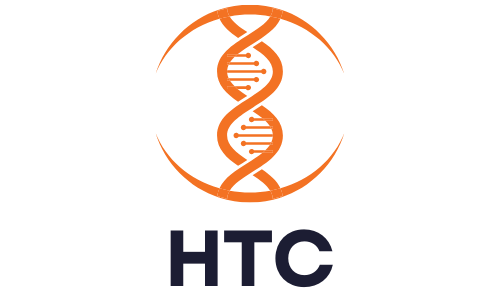Ethical Considerations for HealthTech Investors
The HealthTech industry is a rapidly evolving sector that promises to revolutionize healthcare delivery through cutting-edge technology. From telemedicine and wearables to advanced diagnostic tools and AI-driven health solutions, HealthTech has the potential to enhance patient outcomes, improve efficiency, and reduce healthcare costs. However, alongside these opportunities come significant ethical considerations that investors must navigate to ensure their investments not only generate financial returns but also contribute positively to society. This blog explores the ethical landscape of HealthTech investments, highlighting key principles, challenges, and strategies for ethical investing in this transformative field.
Ethical investment, often referred to as socially responsible investment (SRI) or impact investing, involves choosing investments that align with certain ethical, social, and environmental criteria in addition to financial performance. In the context of HealthTech, this means supporting companies that prioritize patient well-being, data privacy, equitable access to healthcare, and ethical research practices.
Ethical investing is guided by principles such as transparency, accountability, and sustainability. Frameworks like the United Nations Principles for Responsible Investment (PRI) and the Global Reporting Initiative (GRI) provide guidelines for evaluating investments based on their environmental, social, and governance (ESG) performance. These frameworks help investors identify companies that are committed to ethical practices and sustainable growth.
Several organizations and initiatives offer frameworks and standards for ethical investing. For example, the PRI encourages investors to incorporate ESG issues into their investment analysis and decision-making processes. The GRI provides standards for sustainability reporting, helping companies communicate their impact on critical sustainability issues.
Ethical Issues in HealthTech
The HealthTech sector faces several ethical challenges, including data privacy concerns, issues of patient consent, and equitable access to healthcare innovations. As HealthTech companies collect and process vast amounts of sensitive patient data, they must implement robust measures to protect this information from cyber threats and ensure patients are fully informed about how their data is used.
Real-world examples highlight the ethical dilemmas faced by HealthTech companies. For instance, a data breach at a major telemedicine provider exposed the sensitive health information of millions of patients, underscoring the importance of robust data security measures. Conversely, companies that prioritize ethical practices, such as obtaining informed consent and ensuring data privacy, tend to foster greater trust and loyalty among their users.
Ethical issues can significantly impact investment decisions. Companies that fail to address ethical concerns may face legal repercussions, financial losses, and reputational damage. Investors must carefully evaluate a company's commitment to ethical practices to mitigate risks and ensure long-term sustainability.
The Role of Regulatory Compliance
Regulatory compliance is crucial for ethical investing in HealthTech. Regulations such as the Health Insurance Portability and Accountability Act (HIPAA) in the United States and the General Data Protection Regulation (GDPR) in Europe set stringent standards for data privacy and patient consent. Compliance with these regulations is not only a legal requirement but also an ethical imperative.
Investors should prioritize companies that demonstrate a commitment to regulatory compliance. This includes conducting regular audits, implementing robust data protection measures, and maintaining transparent communication with patients and regulators. Non-compliance can result in hefty fines, legal repercussions, and damage to a company's reputation, making it a critical factor in ethical investment decision-making.
Non-compliance with regulations can have severe consequences for both companies and investors. Legal penalties, financial losses, and reputational damage can erode investor confidence and negatively impact financial performance. Ethical investors must ensure that their portfolio companies adhere to relevant regulations to protect their investments and uphold ethical standards.
Strategies for Ethical Investing in HealthTech
Identifying ethical HealthTech companies requires thorough due diligence. Investors should evaluate a company's policies on data privacy, patient consent, and equitable access to healthcare. This involves reviewing their compliance with relevant regulations, assessing their corporate governance structures, and analyzing their impact on society and the environment.
Integrating ethics into investment decisions means adopting a comprehensive due diligence process that considers both financial and non-financial factors. Investors should assess a company's ESG performance, evaluate their commitment to ethical practices, and consider the broader impact of their investments on society and the environment.
Long-term investment strategies focus on supporting companies that demonstrate a commitment to sustainable growth and positive social impact. Short-term gains should not come at the expense of ethical considerations. By prioritizing long-term sustainability, investors can achieve both financial returns and positive social impact.
Case Studies of Ethical HealthTech Investments
Several HealthTech companies exemplify strong ethical practices, demonstrating the potential for positive social impact and financial success. For instance, a leading telemedicine company has implemented rigorous data privacy measures, obtaining explicit patient consent and ensuring secure data storage. This commitment to ethical practices has earned them widespread trust and a loyal customer base, driving their market growth.
Another example is a biotech firm that focuses on developing affordable and accessible treatments for rare diseases. Their ethical approach to healthcare innovation, combined with their efforts to engage with and support patient communities, has positioned them as a leader in the HealthTech space. These case studies illustrate that ethical practices can drive both social impact and financial performance.
Companies that prioritize ethical practices tend to experience sustainable growth and positive market impact. By fostering trust and loyalty among patients and healthcare providers, these companies can enhance their market position and achieve long-term success. Ethical investment strategies that support these companies can generate both financial returns and positive social impact.
Investors can learn valuable lessons from the success stories of ethical HealthTech companies. Prioritizing data privacy, obtaining informed consent, and ensuring equitable access to healthcare innovations are critical components of ethical investing. By supporting companies that uphold these principles, investors can contribute to positive social impact and achieve sustainable financial returns.
Notable Labs: Pioneering Precision Medicine Integration in Health Insurance
Notable Labs is a trailblazer in the healthcare industry, pushing the boundaries of precision medicine and its integration into standard healthcare coverage. The company stands at the forefront of this revolutionary approach, showcasing how advanced genetic and molecular analyses can be seamlessly incorporated into the healthcare system to benefit patients universally. Through strategic collaboration with insurers and healthcare providers, Notable Labs is pioneering innovative methods to make precision medicine treatments not only accessible but also affordable for all patients.
At the core of Notable Labs’ approach is the use of advanced genetic and molecular analyses. These techniques enable a deeper understanding of individual patient profiles, allowing for the development of highly personalized treatment plans. By analyzing the genetic makeup and molecular characteristics of patients, Notable Labs can identify the most effective treatments tailored to each individual's unique needs. This approach not only enhances treatment efficacy but also minimizes the risk of adverse reactions, thereby improving overall patient outcomes.
Collaboration with Insurers and Healthcare Providers
Notable Labs collaborates closely with both insurers and healthcare providers to ensure that precision medicine treatments are integrated into standard healthcare plans. This collaboration is crucial for the widespread adoption of precision medicine. By working with insurers, Notable Labs helps develop reimbursement policies that recognize the value and cost-effectiveness of precision treatments. These policies are based on robust clinical data and evidence-based practices, ensuring that insurers are confident in covering these advanced treatments.
The commitment to evidence-based practices and robust clinical data is a cornerstone of Notable Labs’ strategy. The company invests heavily in clinical trials and research to gather comprehensive data on the effectiveness and cost-efficiency of precision medicine treatments. This data is then used to advocate for the inclusion of these treatments in standard insurance coverage. By demonstrating the tangible benefits of precision medicine through solid evidence, Notable Labs builds a compelling case for its widespread adoption.
Transforming Patient Care
Notable Labs exemplifies the transformative potential of precision medicine. By integrating cutting-edge medical advancements into everyday healthcare, the company is setting a new standard for patient care. Precision medicine allows for a more targeted and effective approach to treatment, significantly improving patient outcomes. This personalized approach ensures that each patient receives the most effective treatment for their specific condition, reducing the trial-and-error aspect of traditional treatments and accelerating recovery times.
One of the primary goals of Notable Labs is to make precision medicine treatments accessible and affordable for all patients. The company is committed to breaking down barriers that prevent patients from receiving the best possible care. By working with insurers to develop cost-effective reimbursement policies, Notable Labs ensures that these advanced treatments are within reach for a broader patient population. This focus on accessibility and affordability is crucial for the widespread adoption of precision medicine.
As a leader in the field, Notable Labs is paving the way for a future where personalized healthcare is the norm. The company’s efforts to integrate precision medicine into standard healthcare coverage are setting a new standard for the industry. By demonstrating the effectiveness and cost-efficiency of personalized treatments, Notable Labs is encouraging other healthcare providers and insurers to follow suit. This shift towards personalized healthcare has the potential to revolutionize the industry, improving health outcomes for patients worldwide.
Looking ahead, Notable Labs envisions a future where precision medicine is a standard part of healthcare, providing every patient with the most effective and individualized treatment possible. The company continues to innovate and push the boundaries of what is possible in healthcare, leveraging the latest advancements in genetic and molecular research to improve patient care. As precision medicine becomes more integrated into the healthcare system, the potential for improved patient outcomes and overall healthcare efficiency is immense.
Notable Labs stands as a beacon of innovation in the healthcare industry, exemplifying the transformative potential of precision medicine. Through its commitment to advanced genetic and molecular analyses, collaboration with insurers and healthcare providers, and dedication to evidence-based practices, Notable Labs is making precision medicine treatments accessible and affordable for all patients. As the company continues to lead the way in integrating cutting-edge medical advancements into everyday healthcare, it is setting a new standard for patient care and paving the way for a future where personalized healthcare is the norm. By ensuring that each patient receives the most effective and individualized treatment possible, Notable Labs is not only improving health outcomes but also shaping the future of healthcare.
The Future of Ethical Investing in HealthTech
The future of ethical investing in HealthTech is promising, with emerging trends and innovations shaping the landscape. Technological advancements, such as artificial intelligence and blockchain, offer new opportunities for enhancing data privacy, improving patient outcomes, and promoting transparency. Investors should stay informed about these trends and consider their ethical implications when making investment decisions.
Technological advancements can enhance ethical practices in HealthTech by improving data security, enhancing patient outcomes, and promoting transparency. For example, AI-driven solutions can help identify ethical risks and optimize data privacy measures, while blockchain technology can ensure secure and transparent data management. By leveraging these technologies, HealthTech companies can enhance their ethical practices and drive positive social impact.
Predictions for the next decade include increased regulatory scrutiny, greater emphasis on patient-centric care, and the development of new ethical standards for emerging technologies. Investors who prioritize ethics will be well-positioned to navigate these changes and capitalize on the growing demand for responsible HealthTech solutions. By staying informed about emerging trends and innovations, investors can identify new opportunities for ethical investment in HealthTech.
Investment Strategies for Ethical HealthTech
To successfully invest in ethical HealthTech, investors should start by identifying promising companies and technologies that align with their values. This involves conducting comprehensive due diligence, assessing a company's commitment to ethical practices, and evaluating their long-term growth potential. Investors should also consider the broader impact of their investments, including how they contribute to societal well-being and environmental sustainability.
Investors should consider several factors when evaluating ethical HealthTech investments, including the company's commitment to data privacy, patient consent, and equitable access to healthcare. Additionally, investors should assess the company's regulatory compliance, corporate governance structures, and impact on society and the environment. By considering these factors, investors can make informed decisions that align with their ethical values.
Long-term investment strategies are particularly important in the HealthTech sector, where innovation and regulatory compliance often require significant time and resources. By focusing on companies that demonstrate a commitment to ethical practices and sustainable growth, investors can achieve both financial returns and positive social impact. Collaborative investments, such as co-investing with other ethical investors or partnering with venture capital firms, can also enhance the effectiveness and impact of ethical investment strategies.
Conclusion
Ethical considerations are paramount in the rapidly evolving HealthTech sector. By prioritizing ethical practices, investors can support companies that not only drive innovation but also contribute to positive social impact. The intersection of HealthTech and ethical investment offers significant opportunities for improving patient outcomes, enhancing data privacy, and promoting equitable access to healthcare.
As the demand for responsible HealthTech solutions grows, investors must remain vigilant about the ethical implications of their decisions. By integrating ethics into their investment strategies, they can help shape a more sustainable and equitable future for healthcare. Encouraging stakeholders to support and invest in ethical HealthTech solutions is crucial for driving positive change and ensuring that the benefits of technological advancements are shared by all.










